Sophia Learning
Sophia: Clarity: Avoiding Assumptions
This lesson discusses avoiding assumptions about the reader. CCSS.ELA-Literacy.WHST.6-8.4
Sophia Learning
Sophia: Cliches: Lesson 1
This lessons introduces cliches and discusses their use. It is 1 of 4 in the series titled "Cliches."
Sophia Learning
Sophia: Cliches: Lesson 3
This lessons introduces cliches and discusses their use. It is 3 of 4 in the series titled "Cliches."
Sophia Learning
Sophia: Concise Language: Lesson 10
This lesson discusses the goal of concision in writing. It is 10 of 10 in the series titled "Concise Language."
Sophia Learning
Sophia: Concise Language: Avoiding Redundancy: Lesson 4
This lesson introduces the concept of redundancy in writing. It is 4 of 4 in the series titled "Concise Language: Avoiding Redundancy."
Sophia Learning
Sophia: Concise Language: Reframing Negatives: Lesson 3
This lesson discusses how to replace negatives with affirmatives. It is 3 of 3 in the series titled "Concise Language: Reframing Negatives."
Sophia Learning
Sophia: Concise Language: Stating the Obvious: Lesson 3
This lesson goes over removing obvious information. It is 3 of 3 in the series titled "Concise Language: Stating the Obvious."
Sophia Learning
Sophia: Word Choice: Lesson 2
A slideshow introducing the topic of word choice and discussing its importance.
Road to Grammar
Road to Grammar: Specific Action Verbs
Choose the correct verb to fill in the blank in each sentence provided.
Sophia Learning
Sophia: Informal Language
This lesson discusses informal language and when it should be used. SL.9-10.6 Adapt to task/formal
TES Global
Blendspace: Traits of Writing
A six-part learning module with links to videos, images, and a rubric about the six traits of writing: ideas, voice, organization, word choice, fluency, and conventions.
TES Global
Tes: Varieties of English
[Free Registration/Login Required] This graphic organizer will help student reflect on the similarities and difference among formal and informal word choices. Dialect, idiolect, and verb effectiveness are featured.
University of Virginia Library
Prism: "The Tone of American Pie" Visualization
[Free Registration/Login Required] See the results of how users have highlighted the lyrics to Don McLean's "American Pie." Details with a nostalgic tone are blue while details with a sad tone are red and an indignant or outraged tone...
ClassFlow
Class Flow: Six Traits Word Choice
[Free Registration/Login Required] Comprehensive flipchart using a number of Activstudio tools to allow students to discover and illustrate words in their writings. Students can paint pictures with their word choice and descriptive words...
ClassFlow
Class Flow: Be More Descriptive
[Free Registration/Login Required] This flipchart helps students find synonyms for tired, dull words in order to make their writing more interesting.
Sophia Learning
Sophia: Diction
This lesson introduces diction. This tutorial shares a short audio lesson [5:11] and supplemental notes with the lesson's content.
Education Development Center
Tv411: Vocabulary: Finding New Ways to Say Something: Activity 1 of 3
Practice your vocabulary skills by choosing the stronger synonym from a word bank to complete each sentence.
Sophia Learning
Sophia: Connotation and Denotation: Lesson 2
This lesson discusses the difference between connotation and denotation. It is 2 of 2 in the series titled "Connotation and Denotation." L.11-12.5b Nuance
Sophia Learning
Sophia: Concise Language: Avoiding Redundancy: Lesson 1
This lesson introduces the concept of redundancy in writing. It is 1 of 4 in the series titled "Concise Language: Avoiding Redundancy."
Austin Independent School District
Austin Independent School: Symbolism, Tone, and Mood [Pdf]
Click through this PDF slideshow to learn what a symbol is and how symbolism is used in literature. Then learn about the difference between tone and mood and see examples of each in a poem.
Writing Fix
Writing Fix: Revision Dice [Pdf]
Revision can be a difficult process for students. With a roll of the dice, students are reminded of the steps they can take to improve their writing. Includes templates for four types of dice that focus on ideas, organization, voice, and...



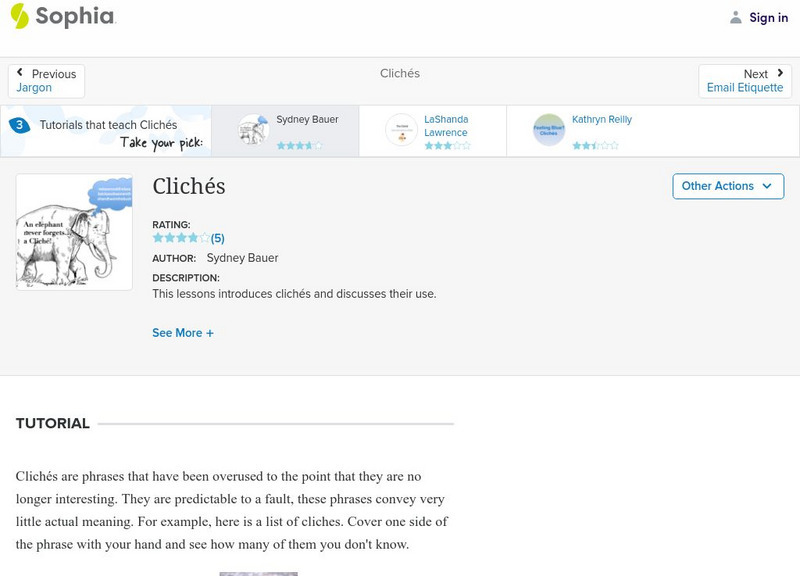
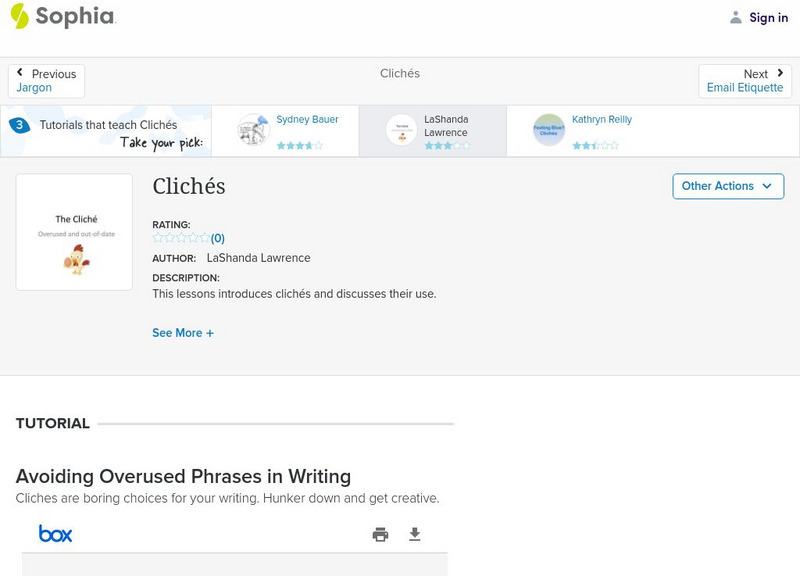




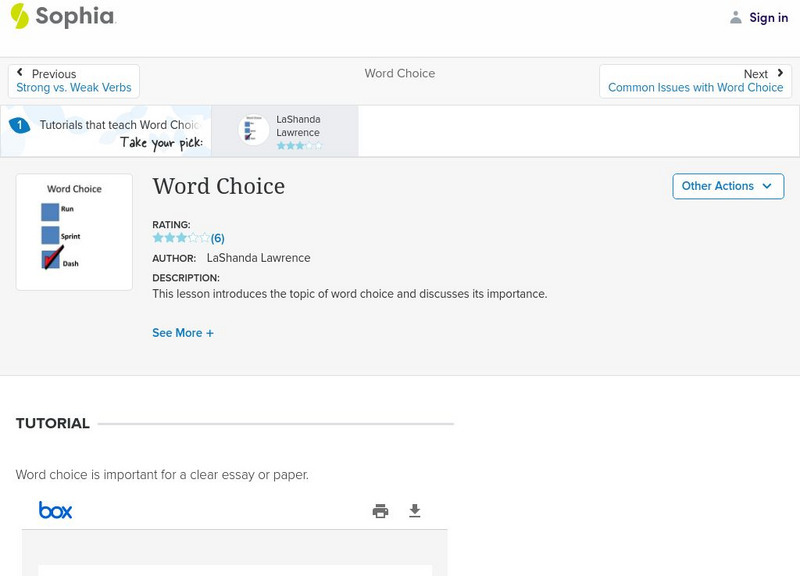
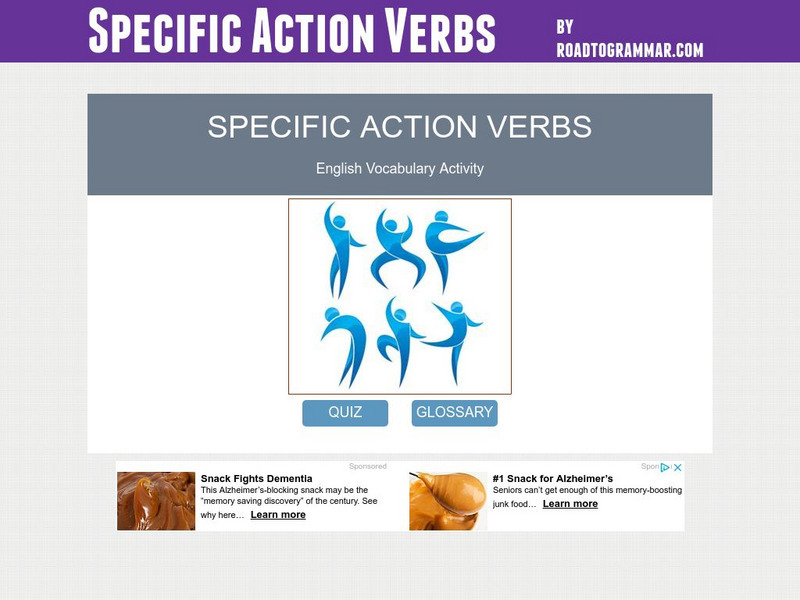
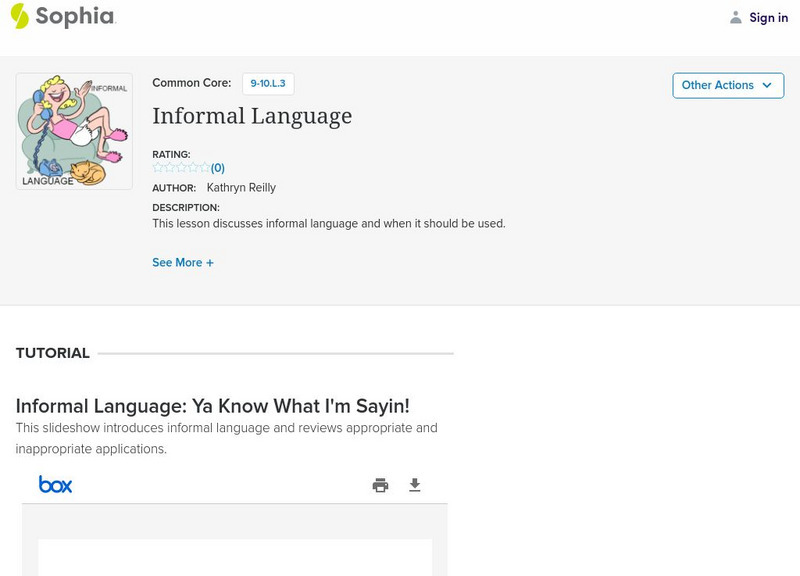
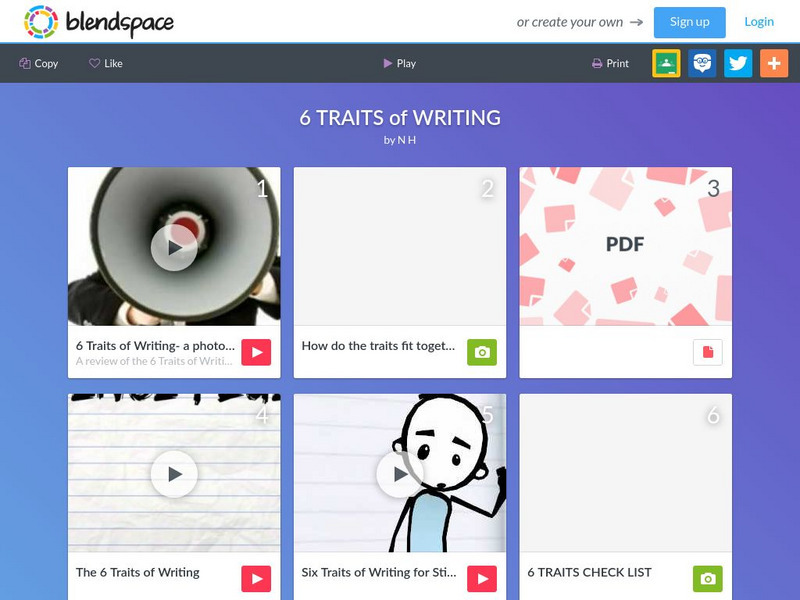








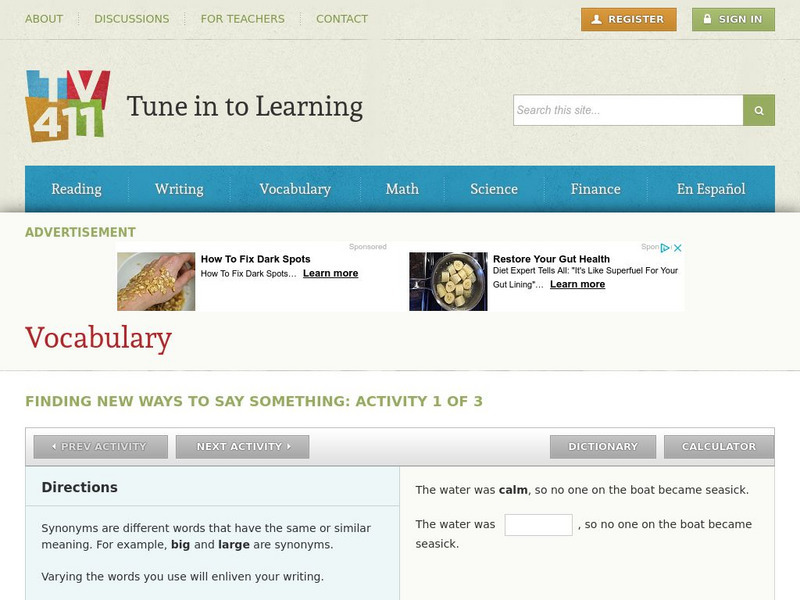


![Austin Independent School: Symbolism, Tone, and Mood [Pdf] PPT Austin Independent School: Symbolism, Tone, and Mood [Pdf] PPT](https://d15y2dacu3jp90.cloudfront.net/images/attachment_defaults/resource/large/FPO-knovation.png)